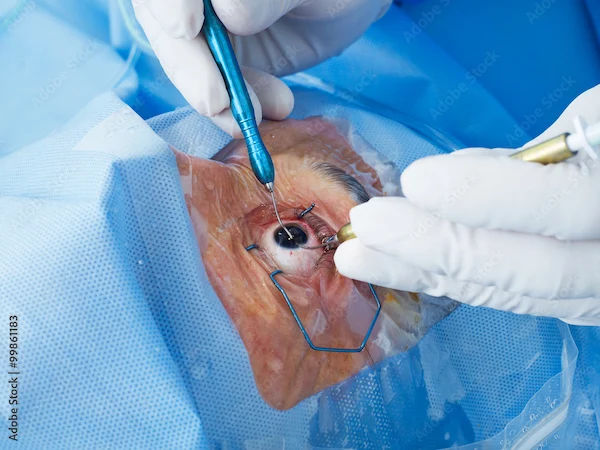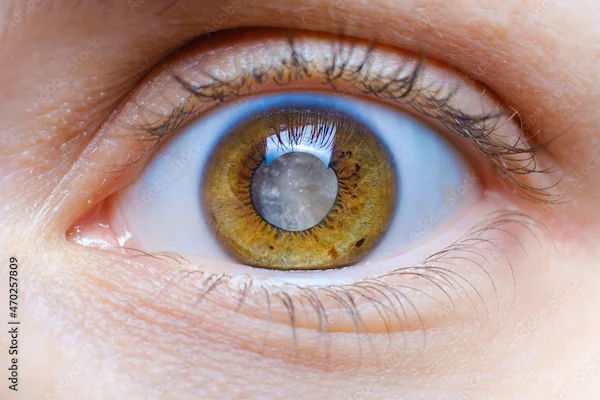Cataract Surgery Cost With Insurance
Explore the cost of cataract surgery with insurance in India. Understand coverage details, out-of-pocket expenses, and how insurance can reduce your financial burden.

Written by
Last updated on 7th Jul, 2025

Introduction
Cataracts are a common eye condition, especially among older adults, where the eye's natural lens becomes cloudy, leading to blurred vision and difficulty seeing clearly. If left untreated, cataracts can significantly impact daily life, making activities like reading, driving, or even recognising faces challenging. Fortunately, cataract surgery is a safe and effective treatment that can restore clear vision. One of the biggest concerns for patients considering cataract surgery is the cost, especially when relying on insurance. This article will help you understand cataract surgery costs with insurance, what factors influence pricing, and how to make the process smoother.
Understanding Cataract Surgery
Cataract surgery involves removing the cloudy lens and replacing it with an artificial intraocular lens (IOL). The procedure is usually quick (15-30 minutes) and performed under local anaesthesia. Most patients experience improved vision within a few days.
Types of Cataract Surgery:
1. Phacoemulsification (Phaco): The most common method, using ultrasound waves to break up the cloudy lens before removal.
2. Femtosecond Laser-Assisted Surgery: A more advanced technique using laser precision for incisions.
Does Insurance Cover Cataract Surgery?
The good news is that most health insurance plans, including Medicare, cover cataract surgery since it is considered a medically necessary procedure. However, coverage details vary depending on the insurance provider and plan.
1. Insurance Plans That Typically Cover Cataract Surgery:
Medicare (Part B): Covers 80% of the approved cost after the deductible.
Private Health Insurance: Most plans cover a significant portion, but co-pays and deductibles apply.
Medicaid: Coverage varies by state but generally includes cataract surgery.
2. What’s Usually Covered?
Surgeon’s fees
Facility charges (hospital or surgery center)
Basic monofocal IOL (standard lens)
Pre- and post-operative care
3. What May Not Be Covered?
Premium IOLs (e.g., multifocal or toric lenses): These advanced lenses correct astigmatism or reduce dependency on glasses but often cost extra.
Laser-assisted surgery: Some insurers consider this an "upgrade" and may not fully cover it.
Additional tests or follow-up visits beyond standard care.
Consult Top Specialists for Personalised Tips
How to Minimise Out-of-Pocket Costs?
Ways to minimise out-of-pocket costs are:
1. Check Your Insurance Policy
Contact your insurer to confirm coverage details.
Ask about deductibles, co-pays, and pre-authorisation requirements.
2. Choose an In-Network Provider
Insurance companies have negotiated rates with certain surgeons and facilities, reducing costs.
3. Opt for a Basic Monofocal Lens
While premium lenses offer added benefits, standard IOLs are fully covered by most plans.
4. Consider Flexible Spending Accounts (FSA) or Health Savings Accounts (HSA)
Use pre-tax dollars to pay for uncovered expenses.
5. Explore Financing Options
Some clinics offer payment plans for additional costs like premium IOLs.
When Should You Consider Cataract Surgery?
If cataracts interfere with daily activities, your doctor may recommend surgery. Common signs include:
Blurry or dim vision
Difficulty seeing at night
Sensitivity to light and glare
Frequent changes in eyeglass prescriptions
Early treatment prevents complications like falls or vision loss.
Final Tips for a Smooth Experience
Some of the tips for smooth experience are:
Get a Pre-Surgery Consultation: Discuss lens options, costs, and recovery expectations.
Follow Post-Op Care Instructions: Avoid rubbing your eyes and use prescribed eye drops.
Attend Follow-Up Appointments: Ensures proper healing and optimal vision results.
Consult Top Eye Surgeon
Consult Top Specialists for Personalised Tips
Dr. S Venkateswaran
Ophthalmologist
35 Years • MBBS, PGD (OPTHALMOLOGY)
Tiruvannamalai
Shiva Eye And General Hospital, Tiruvannamalai
(25+ Patients)

Dr. Sneha T Khurana
Ophthalmologist
9 Years • MBBS, MS Ophthalmology
Gurugram
GS multispeciality clinic, Gurugram

Dr Rajesh Rastogi
Ophthalmologist
33 Years • MBBS, MS Ophthalmology
New Delhi
Rotary Diabetic Centre, New Delhi
Dr. Akashdipta Saha
Ophthalmologist
4 Years • MBBS, MD(Ophthalmology), Fellowship in Retina & Vitreous
Delhi
AIIMS, Delhi
Dr. Harshavardhan Reddy
Ophthalmologist
3 Years • MBBS , MS (Ophthalmology)
Hyderabad
Ram Dev Rao Hospital, Hyderabad
Consult Top Eye Surgeon
Dr. S Venkateswaran
Ophthalmologist
35 Years • MBBS, PGD (OPTHALMOLOGY)
Tiruvannamalai
Shiva Eye And General Hospital, Tiruvannamalai
(25+ Patients)

Dr. Sneha T Khurana
Ophthalmologist
9 Years • MBBS, MS Ophthalmology
Gurugram
GS multispeciality clinic, Gurugram

Dr Rajesh Rastogi
Ophthalmologist
33 Years • MBBS, MS Ophthalmology
New Delhi
Rotary Diabetic Centre, New Delhi
Dr. Akashdipta Saha
Ophthalmologist
4 Years • MBBS, MD(Ophthalmology), Fellowship in Retina & Vitreous
Delhi
AIIMS, Delhi
Dr. Harshavardhan Reddy
Ophthalmologist
3 Years • MBBS , MS (Ophthalmology)
Hyderabad
Ram Dev Rao Hospital, Hyderabad




